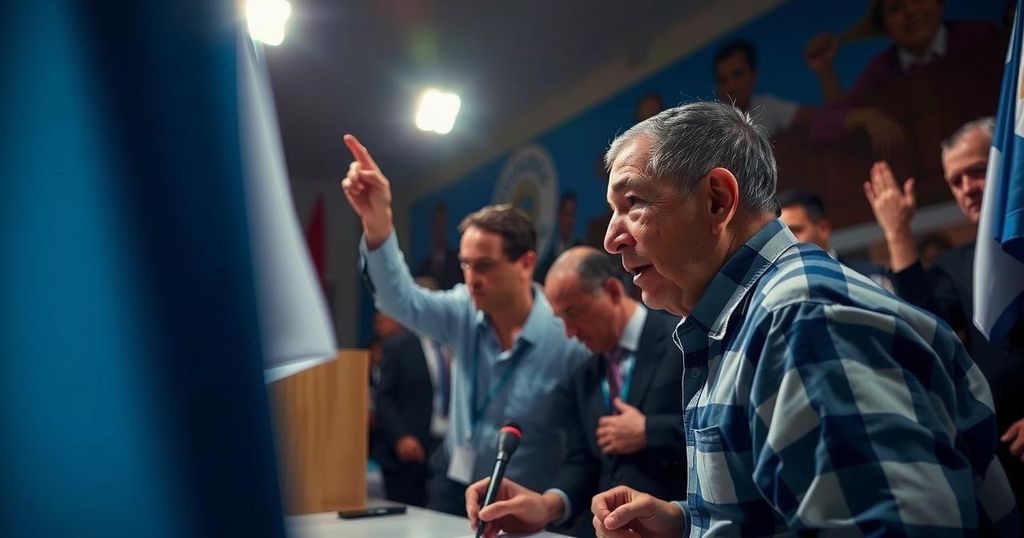Uruguayans voted in a closely contested presidential runoff election between conservative Álvaro Delgado and leftist Yamandú Orsi. Following a tight first round, control of Congress remains uncertain, with both candidates addressing social issues and voter concerns over crime. As election results loom, the level of voter engagement and decisiveness appears lower than expected, potentially affecting outcomes.
In Uruguay, the presidential election has culminated in a tightly contested runoff, with voters participating in the decisive second round amid heightened anticipation. The conservative governing party’s candidate, Álvaro Delgado, faces opposition from Yamandú Orsi of the left-leaning Broad Front, following a first round where Delgado garnered 27% and Orsi received 44% of the votes. Additional support from conservative coalition partners, notably the Colorado Party, has provided Delgado with a competitive edge.
This election cycle is pivotal, as it marks a potential shift in leadership after a decade and a half of leftist rule by the Broad Front, which saw significant social reforms, including the legalization of same-sex marriage and abortion. The current political landscape includes heightened concerns regarding safety and a struggling economy, influencing voter sentiment. While both candidates share common ground on many issues, differing approaches to governance and key social policies are central to their campaigns and voter support.
As Uruguay navigates this critical electoral juncture, the outcome remains uncertain, with both candidates showing promising support from their respective bases. Yet, widespread voter apathy and indecisiveness might affect final results. Each candidate’s vision for the future underscores the distinct paths that Uruguay could undertake, making the forthcoming official results crucial for the nation’s political and social trajectory.
Original Source: gazette.com






